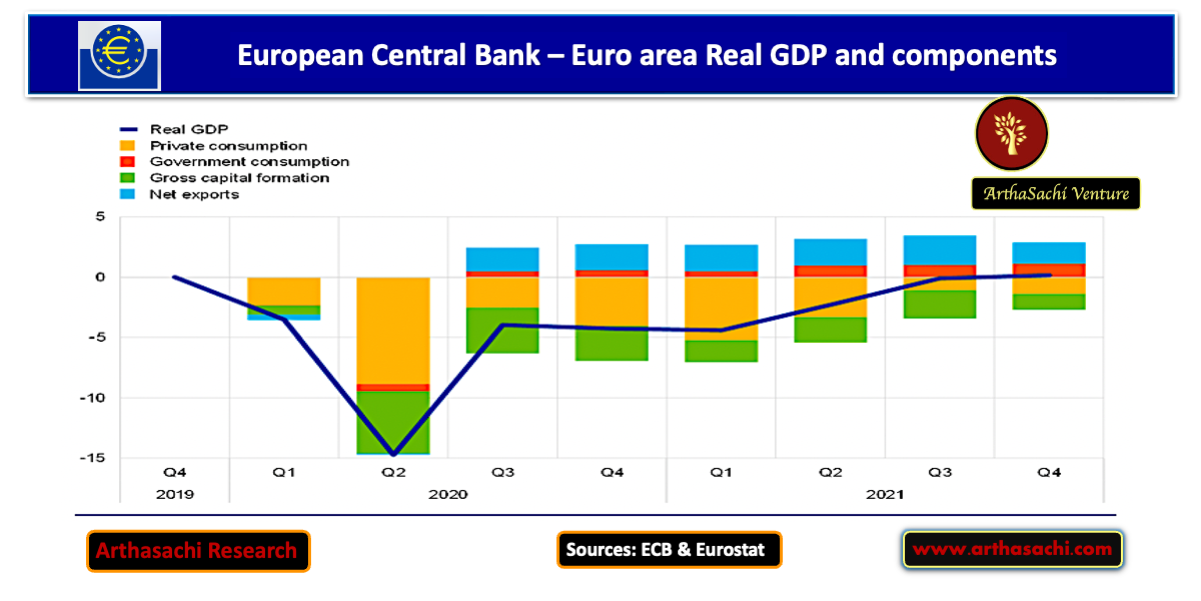
European Union GDP Growth
The Euro area economy grew by 0.3 percent in the final quarter of 2021. It is estimated that growth remained weak during the first quarter of 2022. Multiple factors point to slow growth also in the period ahead. Escalation conflict in the region is already weighing on the confidence of business and consumers, and with energy and commodity higher prices, households are facing a higher cost of living and firms are confronted with higher production cost and supply chain constraint adding uncertain growth phase.
According to the baseline, the deficit ratio is estimated to have fallen to 5.5% of GDP in 2021 from a peak of 7.2% in 2020. It is projected to fall further to 3.1% in 2022 and to 2% by the end of the forecast horizon.
The March staff macroeconomic projections foresee annual real GDP growth at 5.4% in 2021, 3.7% in 2022, 2.8% in 2023 and 1.6% in 2024. The outlook has been revised down for 2022 and 2023 as compared to December projections. GDP growth could end up 1.4 percentage points below the baseline in 2022 and 0.5 percentage points below it in 2023, with relatively modest catch-up effects in 2024.
ECB will continue its fiscal and monetary policy support which remains a critical, in the current geopolitical situation. ECB will push for the successful implementation of the investment and reform plans under the Next Generation EU programme which will accelerate the energy and green transitions.


